In April 2015, the UK Intellectual Property Office (UKIPO) published three reports reflecting a legal and empirical study into the intellectual property (IP) implications of 3D printing. The project – commissioned by the UKIPO – was awarded to Bournemouth University and was led by Dr. Dinusha Mendis.
Together with Dr. Mendis, the research team consisted of Dr. Davide Secchi (Southern University, Denmark; previously Bournemouth University at the time of conducting the research) and Dr. Phil Reeves (Econolyst Ltd – now Stratasys Strategic Consulting Ltd).
All three reports can be found here and further information about the project, including research findings and recommendations for the UK Government, Industry and Intermediaries can be found here.
Since the publication of the reports, Dr. Dinusha Mendis, Co-Director of the Centre for Intellectual Property Policy and Management (CIPPM) has been invited to deliver a number of invited talks in UK and Abroad, thereby reflecting the impact of the research.
This blog-post highlights the invited talks in UK. For dissemination of research in the EU, please see here.
Plymouth Law School, One Day Workshop on CSR
On 28 August 2015, Plymouth Law School held a one-day workshop, titled, ‘Valuing Knowledge, Creativity and Innovation: Relating Corporate Social Responsibility to Copyright Law’.
The workshop considered the prospect of practising Corporate Social Responsibility (CSR) in relation to copyright, where similar ideas of corporate social awareness have already applied to other areas of intellectual property protection.
Dr. Mendis explored the issue from the angle of emerging technologies and gave a presentation titled ‘Printing the Future: Is there a Need for Regulation? The Copyright Implications of 3D Printing’.
Other invited speakers on the day included, amongst others, Professor Charlotte Waelde, Professor of Intellectual Property, Exeter University and Dr. Abbe Brown, Reader and Deputy Head of the Law School, University of Aberdeen.
Please see here for further information.
EPIP Conference 2015, CREATe, University of Glasgow
From 2-3rd September 2015, CREATe, the RCUK Centre for Copyright and New Business Models in the Creative Economy at the University of Glasgow hosted the 10th Annual Conference of European Policy for Intellectual Property (EPIP). The event explored intellectual property from an economic, legal and political perspective considering its impact in the creative economy with a focus on copyright, data and the changing economics of the digital world.
Dr. Mendis presented and led a panel titled ‘A Legal and Empirical Study into the Intellectual Property Implications of 3D Printing – Findings, Conclusions and Recommendations’. The panel consisted of the research team, which carried out the research for the UKIPO Project, with a Panel member from the UKIPO outlining the next steps in relation to policy in the area of 3D printing and IP Law.
Together with Dr. Mendis, other Panel members included Dr. Davide Secchi (University of Southern Denmark), Ms. Sophie Jones (for Dr. Phil Reeves) (Stratasys Strategic Consulting) and Ms. Pippa Hall of the UK Intellectual Property Office.
Further information this event can be found here and further information about the conference including presentations from both days can be found here.
IPAN Event, London
On 11 November 2015, the Intellectual Property Awareness Network (IPAN) hosted an evening event, which explored 3D printing from an industry perspective as well as from a legal (IP) perspective. IPAN is a non-profit organisation working to improve understanding of patents, trademarks, designs, copyright and other IP rights and their value to society.
IPAN is chaired by CIPPM Associate Director, Professor Ruth Soetendorp.
Dr. Mendis was invited to deliver a talk highlighting the research findings, conclusions and recommendations of the UKIPO Project and its implications for IPAN’s membership. Dr. Mendis spoke alongside Mr. Paul Gately, EMEA Manager of 3D Systems.
3D Printing Panel and Poster Presentation at University of Liverpool
On 11 December 2015, Dr. Mendis will form part of a panel exploring the topic of 3D printing and its implications for IP law, from a broader perspective at the University of Liverpool.

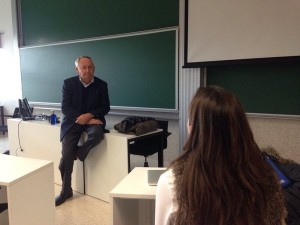


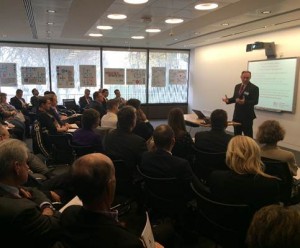
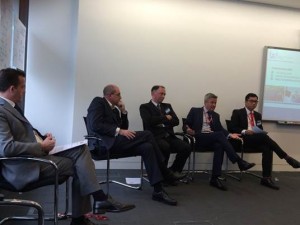

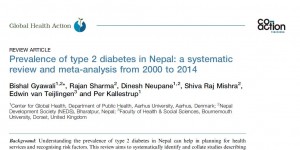




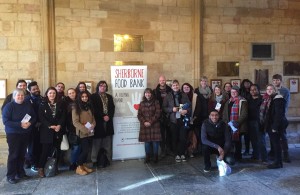















 Expand Your Impact: Collaboration and Networking Workshops for Researchers
Expand Your Impact: Collaboration and Networking Workshops for Researchers Visiting Prof. Sujan Marahatta presenting at BU
Visiting Prof. Sujan Marahatta presenting at BU 3C Event: Research Culture, Community & Can you Guess Who? Thursday 26 March 1-2pm
3C Event: Research Culture, Community & Can you Guess Who? Thursday 26 March 1-2pm UKCGE Recognised Research Supervision Programme: Deadline Approaching
UKCGE Recognised Research Supervision Programme: Deadline Approaching ECR Funding Open Call: Research Culture & Community Grant – Apply now
ECR Funding Open Call: Research Culture & Community Grant – Apply now ECR Funding Open Call: Research Culture & Community Grant – Application Deadline Friday 12 December
ECR Funding Open Call: Research Culture & Community Grant – Application Deadline Friday 12 December MSCA Postdoctoral Fellowships 2025 Call
MSCA Postdoctoral Fellowships 2025 Call ERC Advanced Grant 2025 Webinar
ERC Advanced Grant 2025 Webinar Update on UKRO services
Update on UKRO services European research project exploring use of ‘virtual twins’ to better manage metabolic associated fatty liver disease
European research project exploring use of ‘virtual twins’ to better manage metabolic associated fatty liver disease